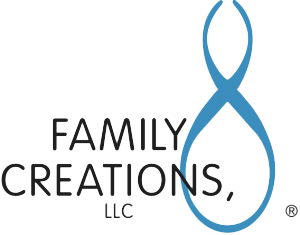
As an egg donor, you have three options when it comes to anonymity and your donation cycle; you can choose to be an anonymous donor, a semi-open donor, or a completely open donor. Seems easy enough to decide, right? But what does this actually mean for you at the time of donation and in the future? We’ve broken it down for you here in this guide to selecting your level of donor anonymity, including some of the nitty-gritty details of the legal contract.
First, here are your options and what each entails:
1. Anonymous
- The majority of our clients wish to work with an egg donor anonymously. This means that the donor is only known to the recipient by her first name and no identifying information is exchanged between the parties. (Other than the photos and profile information that the donor supplies.) All of our egg donors must be open to donating anonymously.
At Match: This is an easy option as nothing extra is required from you. You’ve completed your donor profile and filled out your family health history questionnaire as accurately as possible.
In the Future: Nothing extra is required of you.
2. Semi-Open
- Having an anonymous phone call, Skype call, or meeting with the recipient which Family Creations facilitates, and no identifying information is exchanged.
- Providing important medical information that the donor may learn later in life to the intended parents through an anonymous third party service. This is handled through a third party agency such as an attorney or donor registry*.
At Match: In choosing a semi-open donation, you’re agreeing to have some communication at match with your recipients. No identifying information is exchanged, so while you may be meeting them or having a conversation with them, your identity is still protected.
In the Future: Let’s say you or a family member is diagnosed with a genetic disorder after your donation, even years later. With a semi-open match, you’re agreeing to share this information with your recipients. This information is relayed through a third party such as an attorney or donor registry*.
*More on providing important medical information and donor registry later in this blog.
3. Completely Open
- All items listed above in Semi-Open Donation.
- Sharing identifying and contact information with my recipients and vice versa.
- Future offspring born as a result of donation can contact donor when they are older.
- Writing a letter at the time of the egg donation to the future offspring that may be born as a result of the donation so the recipient can share the letter with the future child(ren) later on in life if so desired.
At Match: As with Semi-Open, you are agreeing to some communication at match. The difference is with an Open Donation you’ll provide your contact information and also receive your recipients contact information, if desired. You may write a letter to the child(ren) born as a result of your donation.
In the future: Lastly, and this is a big deal- you are agreeing that any children born as a result of your donation may contact you in the future. This is a lot to consider, and probably best to discuss it with close friends and family members, as well as your attorney and egg donor case manager.
A Little of the Nitty-Gritty
Generally in Semi-Open and Open donations, the donor is allowed to be informed of a pregnancy/live birth. Is this information you’d like to receive? If so, you’ll want to ask your attorney whether or not you’re entitled to be informed of this and how to go about receiving this information. Same for anonymous donations- if you’d like to be entitled to this information it will need to be added to the contract and agreed upon by both parties (donor and recipients).
This brings us to a very sensitive matter, consanguinity. Consanguineous: of the same blood or origin; specifically: descended from the same ancestor. More than likely both you and your recipients would want to take preventative measures to decrease the chances of your future biological child and their donor-conceived child from either meeting or developing a relationship. Be proactive- talk with your attorney about adding language to the contract that allows you to receive at least a birth date of any children born as a result of your donation.
Often times, egg donor contracts will include a clause that requires the donor to provide important medical information as it is discovered, such as the diagnosis of a genetic disorder in the donor or family members of the donor. Talk with your attorney about this- if you are obligated to provide updates regarding your medical information, to whom do you provide this information? Make sure you are clear on to whom and how to relay this pertinent information. Consider this as well, would you be interested in learning if children born as a result of your donation develop any hereditary medical conditions? Again, you may want to be sure that this is added to the contract and clear language is added regarding to whom and how to relay this information.
The Donor Sibling Registry (DSR) was founded in 2000 with the mission to “assist individuals conceived as a result of sperm, egg or embryo donation that are seeking to make mutually desired contact with others with whom they share genetic ties.”- Donor Sibling Registry. The DSR can also be used as a medium for relaying pertinent medical and mental health updates between donor, recipient, and future offspring. For more information, check out their website and of course, talk with your attorney about your options with DSR.
